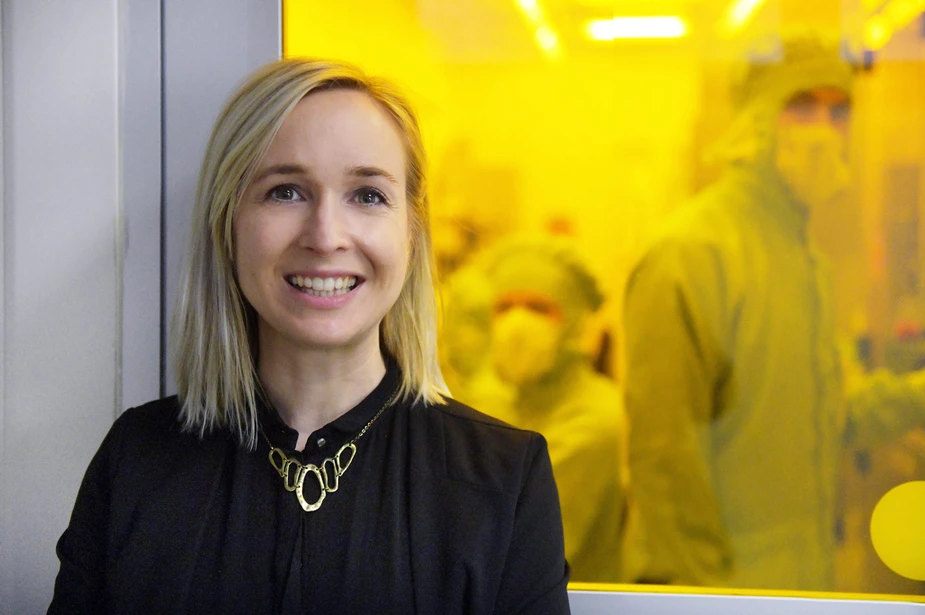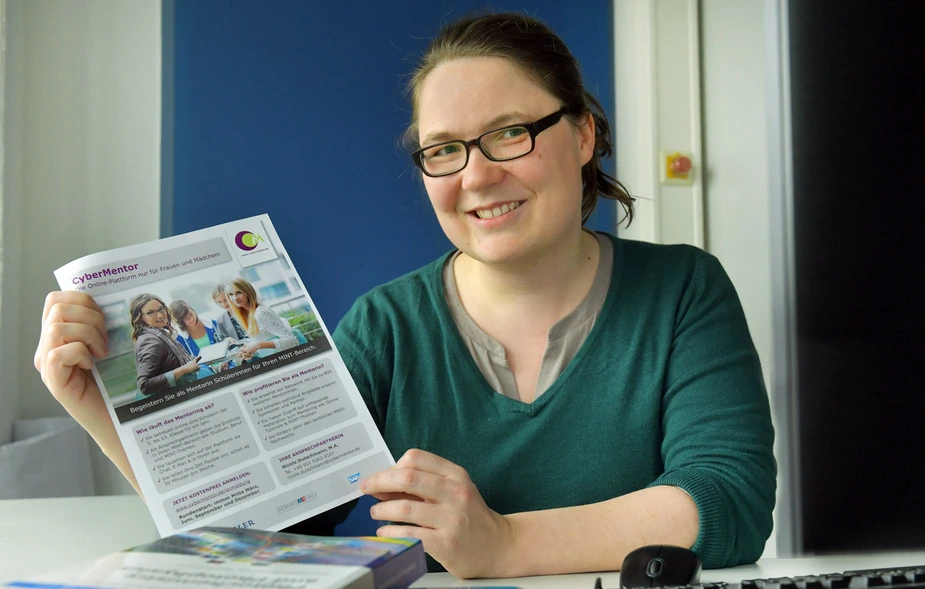Kickstarting Women’s Careers in Research
Mentoring programmes bring together like-minded women and foster academic careers
One works as a mentor sparking the enthusiasm of girls for STEM subjects, while the other joined a tandem partnership with a renowned Swedish researcher, who shares her valuable experiences. They both represent a generation of confident female researchers to whom aiming for the top comes naturally – without losing sight of the bigger picture.
Although they have not yet met each other, Andrea Lübcke, a PhD physicist with a soft spot for photoemission spectroscopy, and Lena, a 11-year-old student from the Ruhr Valley, have been busy exchanging ideas for months. “We are both interested in astrophysics and black holes,” says Lübcke, who is a researcher at the Adlershof-based Max-Born-Institute (MBI) and a mother of two children. Her day-to-day life shuttles between her children’s lunchboxes and researching DNA molecules’ absorption behaviour under the influence of photons.
The researcher met Lena in the CyberMentor programme: women who study a STEM subject or work in a STEM field meet with interested girls for a chat. They share insights into their occupations with them and aim at conveying the same sense of assurance that enabled them to pursue a career in largely male-dominated fields. “Until they reach primary school age, girls and boys are equally interested in the natural sciences and mathematics. But then the girls start to withdraw from those subjects bit by bit,” says Lübcke, who is also the vice equality officer at the MBI. She wants to help to keep Lena’s interest in physics alive for as long as necessary. Despite her crowded schedule, she gladly makes time to chat with the young student for an hour a week.
Hundreds of women like Lübcke are active cyber mentors sharing their passion for STEM subjects with girls between primary school age to high school age. The programme offers much more than just one-on-one chats. It offers a platform for like-minded women to meet up, who take prospective female scientists under their wings and foster their academic careers.
But also seasoned researchers like Maria Reiner can use a sympathetic ear. The 31-year-old PhD chemist also works as a researcher in Adlershof. Her research focus is on nitrides and their interface reaction behaviour in semiconductor materials. Born in Austria, she completed stints in Australia, England and Germany, cooperated with researchers from Israel and Sweden and, lastly, won a dissertation award, before she joined the development department of Infineon, a semiconductor manufacturer. Many would have dropped their anchor and made the best of the career options at hand. But Reiner sensed that her search had not ended.
In mid-2016, she joined the Ferdinand-Braun-Institute, Leibniz-Institut für Höchstfrequenztechnik (FBH), where she has since been head of the research team on process optimisation in wet chemistry and lithography. Her research is relevant to the manufacturing of LEDs, lasers and photodetectors. Heavy stuff for laypersons, but for Reiner it’s the stuff of dreams. She volunteers as an editor of an open access journal alongside her job: science should advance humanity and not serve maximisation of profits.
But she also wants to advance her career. She works on it with the same confidence and assurance as Andrea Lübcke does. And she is also plays a part in a mentoring programme – but as a mentee. The Leibniz Association funds the programme, which supports female leaders. They can choose any mentor they want. Reiner chose an international luminary: Prof. Eva Olsson of Chalmers University in Gothenburg. She is a physicist, a member of the Nobel Prize committee – and for the past few months also the dedicated mentor of our young researcher. The first meeting as well as events, phone calls and e-mails have shown that there is a chemistry between the two natural scientists. The FBH researcher benefits from it in many ways: “I have the professional exchange with Eva and I get first-class contacts to other researchers on an international level,” she says.
Reiner is also intrigued by the insights she is getting into the structures in Sweden, where women in senior management are far more common. The young generation of researchers, which Lübcke and Reiner are a part of, is working towards making it as common here as it is there. Mentoring programmes are helping them along the way.
By Peter Trechow for Adlershof Journal

